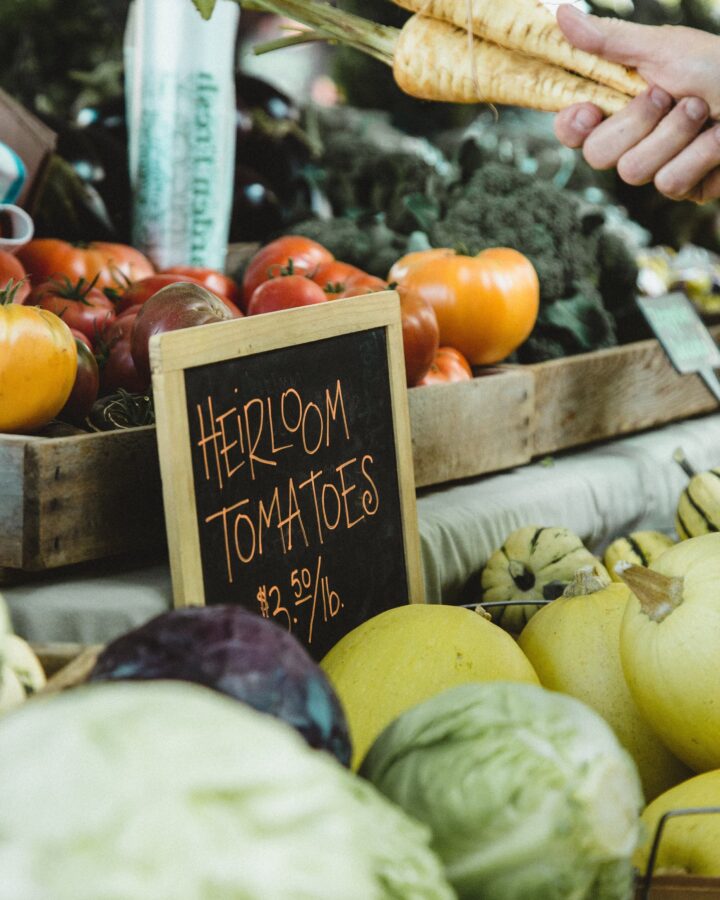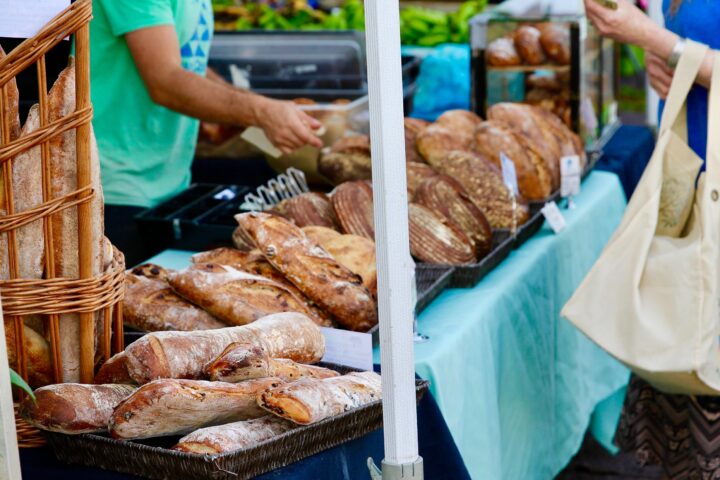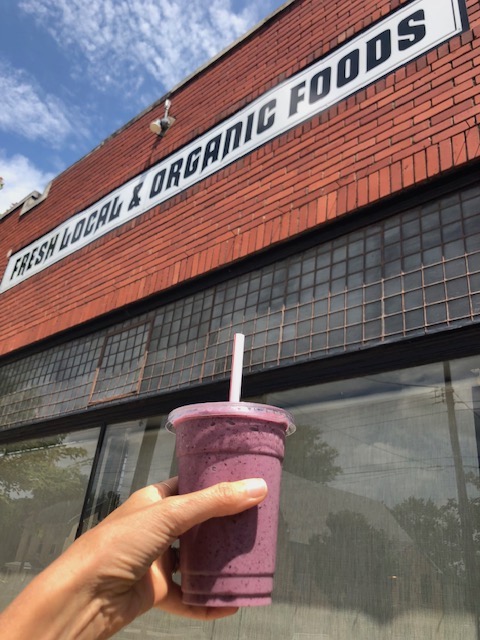
Longer days, flowers blooming, pool days, vacation…I look forward to all of these things in the summer. But when that sign pops up announcing the first farmer’s market… that’s the good stuff of summer. Summer is a time when we have the opportunity to buy local and support the hard work of our local farmers.
I love perusing the stalls at farmer’s markets, talking to the growers and the artisans and hearing their stories. I’m inspired by the farmer’s market community…the table of girl scouts raising money by selling lemonade or discovering new ways to prep vegetables. I enjoy the stalls brimming with flowers and the tables of soaps, honeys and loaves of bread.
The ease of picking up a few items and having a fresh farm to table dinner that same evening cannot be matched. Truly a simple joy of summer.
Farmers’ hours are long and the work is hard. To buy local and support your local farmers has a social, economic and environmental impact.
Here are some of the benefits to buying local.

Why buy local
1. Buying local is more nutritious
Produce at the farmer’s market is more nutritious. Why? It is picked at peak ripeness and only has to travel from the farm to the market. Alternatively, supermarket produce is picked early (to prevent spoilage) to account for the miles and miles it will have to travel to get to its final destination. The produce does not have the chance to grow to maturity and reach its full nutrient potential.
2. Supporting local is better for the environment
Lesser carbon footprint:
Farmer’s market produce creates a much smaller carbon footprint. Again, this is mainly due to the fact that the produce does not have to be transported hundreds or thousands of miles. Less fuel, less greenhouse gases.
Green space preservation:
Buying local preserves green space in the community. The revenue earned from sales of farmers’ produce allows farms to maintain their operations thereby protecting valuable green space. And added bonus: you get to enjoy the beauty of the farmland within your community.
Sustainability/less packaging:
Produce from the farmers market comes without packaging. Consumers are encouraged to bring reusable totes to transport purchases home. Less packaging equals less waste.
Further, local growers continue to diversify the soil and are good stewards of natural resources, which maintains the beauty of the community for years to come. I don’t know about you but this is one of the most important points for me. Let’s help support taking care of this land and community we were given.
3. When you buy local it benefits the local economy
Local farm operations provide jobs in the community. Additionally, the money exchanged at local markets stays in the local economy rather than going to larger corporations in another state or country.


4. Buying local supports continued stewardship
Buying local makes it possible for farmers and their families to stay on their land. Supporting growers puts money in their pockets…simple economics. The land that they farm may have been passed down for generations (something fun you can find out when you interact with them at the market). We have the opportunity to ensure it stays in their hands for years to come.
5. When you buy local you help build strong communities
Buying local creates a sense of community! As mentioned earlier, chatting with fellow market shoppers, growers and artisans and hearing their stories or learning a new recipe provides value and builds relationships. Finding out why someone started keeping bees or how a sourdough recipe has been passed down in the family for over a hundred years establishes connection in a disconnected world.
I am here for what the market brings year after year!
Taking steps to support local
How can you make steps to support local in your community? Even if your town doesn’t have a local stand you can look for restaurants that use local ingredients or you can visit farms that offer pick your own produce. I also look for opportunities when I am on vacation to visit local farm stands and farm to table restaurants.
Search for CSA’s (community supported agricultural) programs in the community. When you join a CSA you signup for a share of weekly crops. Each week you pick up a box brimming with produce and perhaps extras such as eggs, jam or loaves of bread.
Finally, check labels when shopping at your local grocery store. Search for foods produced close to home such as meat, dairy, produce, jams, bread and other baked goods.


